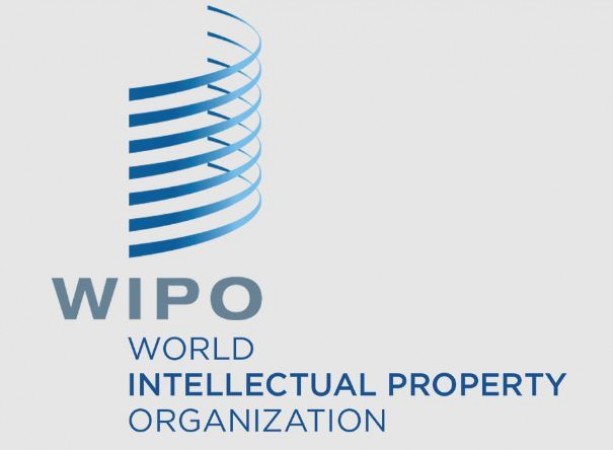
In a rapidly evolving global economy driven by innovation and creativity, the protection of intellectual property rights (IPRs) has become a crucial aspect of fostering progress and development. Intellectual property encompasses a wide range of intangible assets, including inventions, creative works, trademarks, and designs. Safeguarding these assets is essential to encourage innovation, incentivize creators, and ensure fair competition. One organization that plays a pivotal role in this realm is the World Intellectual Property Organization (WIPO).
Understanding Intellectual Property Rights (IPRs)
What are Intellectual Property Rights?
Intellectual Property Rights are legal rights granted to individuals or entities to protect their creations or inventions from unauthorized use or exploitation. These rights provide exclusive ownership over the intangible assets and allow the creators to reap the benefits of their hard work and investment.
Importance of Intellectual Property Rights
IPRs are of paramount importance as they encourage inventors, artists, and innovators to continue their creative endeavors without fear of theft or plagiarism. The protection they provide fosters a conducive environment for creativity, leading to advancements in technology, arts, and culture.
Types of Intellectual Property Rights
There are various types of IPRs, each catering to different aspects of creativity and innovation. The major types include patents, trademarks, copyrights, trade secrets, and industrial designs.
Role of World Intellectual Property Organization (WIPO)
Establishment and Purpose of WIPO
WIPO was established in 1967 as a specialized agency of the United Nations with the primary objective of promoting and protecting intellectual property rights worldwide. Its creation was in response to the need for a global organization that could facilitate international cooperation and harmonization of IP laws.
WIPO's Mission and Objectives
WIPO's mission is to lead the development of balanced and effective international intellectual property systems that support innovation, creativity, and economic development. Its core objectives include setting international IP standards, providing services to facilitate IP protection, and serving as a forum for IP-related policy discussions.
WIPO's Key Functions
WIPO fulfills its mission through various key functions, such as administering international treaties, providing IP registration services, offering capacity-building programs, and conducting research on IP-related issues.
WIPO Treaties and Agreements
Paris Convention for the Protection of Industrial Property
The Paris Convention, established in 1883, is one of the oldest and most significant multilateral treaties in the field of intellectual property. It provides a framework for the protection of industrial property, including patents, trademarks, and industrial designs, in member countries.
Berne Convention for the Protection of Literary and Artistic Works
The Berne Convention, adopted in 1886, is a critical treaty for the protection of copyrights globally. It ensures that the works of authors and artists are protected in member countries, even without the need for registration.
Patent Cooperation Treaty (PCT)
The PCT simplifies the process of filing patent applications in multiple countries. By filing a single international application, inventors can seek protection for their inventions in a large number of countries simultaneously.
Madrid System for Trademark Registration
The Madrid System is a cost-effective and efficient way for businesses to register and manage their trademarks internationally. It provides a centralized system for trademark registration in multiple member countries.
The Hague System for Industrial Designs
The Hague System enables designers to protect their industrial designs in multiple member countries through a single international application.
WIPO's Efforts in Protecting Intellectual Property Globally
Encouraging Innovation and Creativity
WIPO plays a pivotal role in encouraging innovation and creativity by providing a robust IP framework that rewards creators and inventors for their contributions. By doing so, it fosters a culture of innovation and continuous improvement.
Facilitating International Cooperation
WIPO serves as a platform for international cooperation and collaboration on intellectual property matters. It brings together countries, stakeholders, and experts to discuss IP-related issues and find common solutions.
Building IP Capacity in Developing Countries
WIPO places significant emphasis on building IP capacity in developing countries. Through various programs and initiatives, it helps these nations enhance their IP infrastructure and effectively participate in the global knowledge economy.
Challenges Faced by WIPO
Balancing Rights and Access to Knowledge
One of the significant challenges faced by WIPO is striking a balance between protecting IP rights and ensuring access to knowledge and information for the betterment of society as a whole.
Addressing Global Counterfeiting and Piracy
WIPO continues to address the global issue of counterfeiting and piracy, which not only affects legitimate businesses but also poses risks to consumers' health and safety.
Coping with Technological Advancements
The rapid pace of technological advancements presents challenges in adapting IP laws and regulations to new digital environments and emerging technologies.
WIPO's Future and Ongoing Initiatives
Promoting Digital Intellectual Property Rights
WIPO is actively involved in promoting digital IP rights to address the challenges posed by the digital era. This includes measures to protect online content and tackle issues like online piracy and unauthorized distribution.
Supporting Small and Medium Enterprises (SMEs)
WIPO recognizes the importance of SMEs in the global economy and provides specific support and assistance to help them protect and leverage their IP assets for growth and competitiveness.
Enhancing Public Awareness on Intellectual Property
WIPO aims to raise public awareness about the significance of IP rights and their impact on economic and cultural development. Educating the public can lead to better respect for IP and its benefits.
In a world where innovation and creativity drive progress, safeguarding intellectual property rights becomes imperative. WIPO, as the preeminent global organization dedicated to promoting and protecting IP rights, plays a pivotal role in fostering a climate of creativity, innovation, and fair competition. By administering essential treaties, facilitating cooperation, and addressing emerging challenges, WIPO continues to contribute significantly to the global intellectual property landscape.
World Trade Organization (WTO): Facilitating International Trade and Resolving Trade Disputes
World Bank Group: Supporting Developing Nations with Financial and Technical Assistance
World Health Organization (WHO): Addressing Global Health Challenges and Pandemics